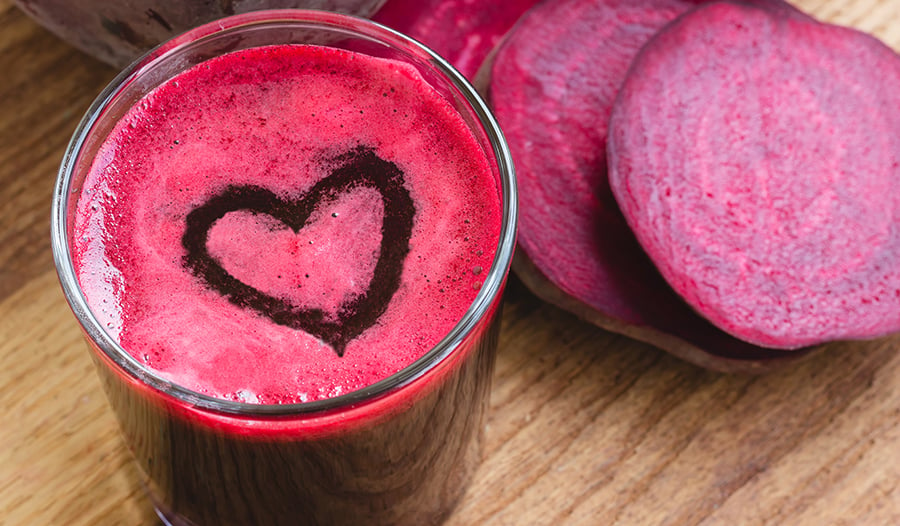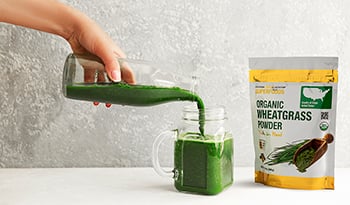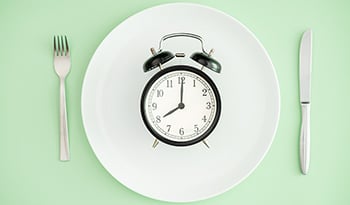Why We Love Beets: Heart Health Benefits and More

Studies suggest that beets may have the amazing potential to promote heart health, especially in the form of beet supplements.
Beets Are Nutritionally Rich
Beets, also known scientifically as Beta vulgaris, are edible taproots thought to have originated in Middle Eastern or Mediterranean regions. Beets have been traditionally used as food and medicine for thousands of years. Historically, cultures in the Middle East used beets for everything from constipation to gut and joint pain. Some cultures even used beets to get rid of dandruff.
Using beets as a traditional medicinal may come as no surprise because beets have many different nutritional properties. Studies suggest that beets are nutritional powerhouses filled with many of the nutrients one might find in a multivitamin supplement like iron, magnesium, thiamin, and folate.
In modern times, beets have been studied for their potential benefit to the heart. More recently, beet supplementation, rather than the use of the vegetable itself, has been the focus of this study. Beet supplements are nutritional products made entirely or mostly of the various parts of the beet plant.
Beet supplements may benefit heart health by decreasing blood pressure, improving exercise performance, and supporting overall heart health by improving blood flow to the heart and improving cholesterol levels.
Benefits of Beets
Heart Health
Studies suggest that beet supplementation may also help improve the health of the heart itself.
One study found that beet supplementation may be helpful for older adults with heart failure. The study involved 20 participants aged between 62 to 76 years old. The participants were given beetroot juice for 7 days and then exercise capacity was measured. After 7 days of beet supplementation, the study found that exercise capacity in the participants with heart failure increased by approximately 24%. Systolic blood pressure was also significantly reduced.
Research indicates that beet supplementation may help improve heart health by increasing cyclic guanosine monophosphate (cGMP) levels in the body. Considered a secondary messenger molecule, cGMP helps to control various responses in the body including vasodilation, or the act of relaxing and widening the blood vessels.
Studies also suggest that beet supplementation may act as a powerful free radical scavenger for the body. Since beets are high in antioxidant nutrients like vitamin C, vitamin E, and betalains, they may act as anti-aging supplements that help promote strong and supple blood vessels.
Cholesterol
Beet supplementation may also help promote a healthy heart by improving high-density lipoprotein (HDL) or good cholesterol levels. One double-blind, randomized placebo-controlled study involving 20 participants measured the effects of beet supplementation on a meal high in fat. The study separated participants into groups that received beet supplementation and groups that did not. Both groups were fed a high-fat diet, but the intervention group was also given beetroot supplementation along with their meal.
The study found that the group that received beet supplements had higher levels of HDL and a lower diastolic blood pressure than the placebo group. HDL, or good cholesterol, helps improve heart health by absorbing excess cholesterol in the blood and bringing it back to the liver for processing.
Studies also indicate that beet supplementation may help to promote heart health by supporting a healthy weight. One study involved individuals who were clinically overweight or obese. Being overweight is clinically defined as having a body mass index (BMI) of 25.0< 30.0, whereas being clinically obese is defined as having a BMI of over 30.0.
Studies show that obesity is linked to an increased risk of poor cardiovascular health. This is because obesity may contribute to changes in heart structure and blood flow to the heart.
One study focused on beet supplementation for improving parameters of obesity. Participants in the study were divided into 2 groups. One group, the control group, received nutritional guidance only while the intervention group received nutritional guidance as well as freeze-dried beet leaves for 4 weeks. Although both groups had significantly lower body weight and BMI, the group that received beet supplementation had lower low-density lipoprotein (LDL) or bad cholesterol than the control group.
LDL delivers cholesterol throughout the body, depositing it in arteries. High amounts of LDL have been linked to higher risks of heart attack and atherosclerotic diseases or hardening of the arteries.
Blood Pressure
Studies indicate that beet supplements may help to lower high blood pressure. One meta-analysis looked at the effects of beet juice supplementation on both systolic and diastolic blood pressure. Systolic blood pressure is the top number of the blood pressure while diastolic is the bottom. The randomized placebo-controlled study found that beetroot juice supplementation was superior to placebo in lowering systolic and diastolic blood pressure within 14 days. The blood pressure–lowering effects were even greater in the beetroot juice group when study participants used the supplement for longer than 14 days.
Another double-blind, randomized, placebo-controlled study involving beetroot juice included 68 participants with high blood pressure. The participants in the intervention group took 250 mL of naturally nitrate-rich beetroot juice for 4 weeks. The control group was given nitrate-depleted beetroot juice for the same amount of time. The study found that the group receiving nitrate-rich beetroot juice experienced lower systolic blood pressure by up to 8 points and lower diastolic blood pressure by approximately 4 points. The study also found that beetroot juice supplementation improved endothelial function and arterial stiffness. There wasn’t any change in blood pressure in the placebo group.
Studies suggest that beet supplementation may also be beneficial for blood pressure in older adults. One randomized placebo-controlled study found that beetroot juice supplementation in adults aged between 51 and 71 years old lowered blood pressure from initial measurements within 3 hours of ingestion. Platelet aggregation was also lower in the beetroot juice group than in that of placebo.
Platelets are cell particles responsible for causing blood clots. They are necessary to stop bleeding in wounds, but too much platelet aggregation or clumping can cause clotting in blood vessels. This could lead to a stroke or heart attack. In addition to reducing platelet aggregation, the study also found that markers of inflammation of the blood vessels were reduced, suggesting that beets may play a potent anti-inflammatory role.
Research indicates that beet supplements may help lower blood pressure because they contain nitrates. Nitrates are naturally occurring nitrogen compounds. When they are introduced into the body by way of diet or through a supplement, they can be converted to nitric oxide. Nitric oxide plays an important role in helping the vascular endothelium to dilate or relax the blood vessels of the body.
The vascular endothelium is a layer of cells that line the vasculature of the body like the arteries, veins, and capillaries. Its job is to actively control the amount of relaxation or tightening of the blood vessels. When the vascular endothelium is relaxed, blood flows more easily throughout the body, which may help reduce blood pressure.
Inflammation
Because beet supplements may also have anti-inflammatory properties, they may help to promote longevity. Inflammation in the blood vessels has been linked to several diseases and disorders, including stiffening of the arteries, rheumatoid arthritis, psoriasis, and inflammatory bowel diseases.
Studies suggest that inflammation is linked to an increase in mortality. With its potent anti-inflammatory potential, beet supplementation may help to reduce inflammation.
Athletic Performance
Studies suggest that maintaining a physically active routine may support heart health. Beet supplements improve athletic performance by increasing endurance and benefiting overall heart function.
One study, a systematic review, found that beet supplementation helped improve the performance of athletes by increasing efficiency and helping athletes exercise longer before reaching exhaustion.
Another study focused on beet supplementation and exercise performance in those suffering from peripheral artery disease (PAD). PAD is a condition that causes less blood flow to the arms or legs due to a narrowing of the arteries. With less blood flow in PAD, exercising can contribute to pain and less effective workouts.
The double-blind, randomized, placebo-controlled study found that participants who suffered from PAD could exercise longer and with heavier workloads when they supplemented with beets. The participants in the beet supplementation group also were able to exercise with less pain than the placebo group.
One double-blind study done on trained cyclists found that 6 days of beet supplementation helped improve training time and increased power output.
Research indicates that beet supplementation may help improve heart health by increasing exercise performance in length and intensity.
Takeaway
Beet supplements may help to improve heart health by reducing blood pressure, increasing exercise performance, and improving good and bad cholesterol levels. Beet supplementation may be a powerful addition to any heart-healthy routine.
References:
- Bahadoran Z, Mirmiran P, Kabir A, Azizi F, Ghasemi A. The Nitrate-Independent Blood Pressure-Lowering Effect of Beetroot Juice: A Systematic Review and Meta-Analysis [published correction appears in Adv Nutr. 2018 May 1;9(3):274]. Adv Nutr. 2017;8(6):830-838. Published 2017 Nov 15. doi:10.3945/an.117.016717
- Baião DDS, Silva DVTD, Paschoalin VMF. Beetroot, a Remarkable Vegetable: Its Nitrate and Phytochemical Contents Can be Adjusted in Novel Formulations to Benefit Health and Support Cardiovascular Disease Therapies. Antioxidants (Basel). 2020;9(10):960. Published 2020 Oct 8. doi:10.3390/antiox9100960
- Carbone S, Canada JM, Billingsley HE, Siddiqui MS, Elagizi A, Lavie CJ. Obesity paradox in cardiovascular disease: where do we stand?. Vasc Health Risk Manag. 2019;15:89-100. Published 2019 May 1. doi:10.2147/VHRM.S168946
- Cermak NM, Gibala MJ, van Loon LJ. Nitrate supplementation's improvement of 10-km time-trial performance in trained cyclists. Int J Sport Nutr Exerc Metab. 2012;22(1):64-71. doi:10.1123/ijsnem.22.1.64
- Chen L, Zhu Y, Hu Z, Wu S, Jin C. Beetroot as a functional food with huge health benefits: Antioxidant, antitumor, physical function, and chronic metabolomics activity. Food Sci Nutr. 2021;9(11):6406-6420. Published 2021 Sep 9. doi:10.1002/fsn3.2577
- Clifford T, Howatson G, West DJ, Stevenson EJ. The potential benefits of red beetroot supplementation in health and disease. Nutrients. 2015;7(4):2801-2822. Published 2015 Apr 14. doi:10.3390/nu7042801
- de Castro APRB, da Cunha DT, Antunes AEC, Corona LP, Bezerra RMN. Effect of Freeze-Dried Red Beet (Beta vulgaris L.) Leaf Supplementation on Biochemical and Anthropometrical Parameters in Overweight and Obese Individuals: a Pilot Study. Plant Foods Hum Nutr. 2019;74(2):232-234. doi:10.1007/s11130-019-00730-0
- Domínguez R, Cuenca E, Maté-Muñoz JL, et al. Effects of Beetroot Juice Supplementation on Cardiorespiratory Endurance in Athletes. A Systematic Review. Nutrients. 2017;9(1):43. Published 2017 Jan 6. doi:10.3390/nu9010043
- Eggebeen J, Kim-Shapiro DB, Haykowsky M, et al. One Week of Daily Dosing With Beetroot Juice Improves Submaximal Endurance and Blood Pressure in Older Patients With Heart Failure and Preserved Ejection Fraction. JACC Heart Fail. 2016;4(6):428-437. doi:10.1016/j.jchf.2015.12.013
- Gomes APO, Ferreira MA, Camargo JM, et al. Organic beet leaves and stalk juice attenuates HDL-C reduction induced by high-fat meal in dyslipidemic patients: A pilot randomized controlled trial. Nutrition. 2019;65:68-73. doi:10.1016/j.nut.2019.03.004
- Hamedi S, Honarvar M. Beta vulgaris - A Mini Review of Traditional Uses in Iran, Phytochemistry and Pharmacology. Curr Drug Discov Technol. 2019;16(1):74-81. doi:10.2174/1570163815666180308142912
- Kapil V, Khambata RS, Robertson A, Caulfield MJ, Ahluwalia A. Dietary nitrate provides sustained blood pressure lowering in hypertensive patients: a randomized, phase 2, double-blind, placebo-controlled study. Hypertension. 2015;65(2):320-327. doi:10.1161/HYPERTENSIONAHA.114.04675
- Krüger-Genge A, Blocki A, Franke RP, Jung F. Vascular Endothelial Cell Biology: An Update. Int J Mol Sci. 2019;20(18):4411. Published 2019 Sep 7. doi:10.3390/ijms20184411
- Mirmiran P, Houshialsadat Z, Gaeini Z, Bahadoran Z, Azizi F. Functional properties of beetroot (Beta vulgaris) in management of cardio-metabolic diseases. Nutr Metab (Lond). 2020;17:3. Published 2020 Jan 7. doi:10.1186/s12986-019-0421-0
- Pasmanter N, Iheanacho F, Hashmi MF. Biochemistry, Cyclic GMP. [Updated 2022 Sep 26]. In: StatPearls [Internet]. Treasure Island (FL): StatPearls Publishing; 2022 Jan-. Available from: https://www.ncbi.nlm.nih.gov/books/NBK542234/
- Proctor MJ, McMillan DC, Horgan PG, Fletcher CD, Talwar D, Morrison DS. Systemic inflammation predicts all-cause mortality: a glasgow inflammation outcome study. PLoS One. 2015;10(3):e0116206. Published 2015 Mar 2. doi:10.1371/journal.pone.0116206
- Raubenheimer K, Hickey D, Leveritt M, et al. Acute Effects of Nitrate-Rich Beetroot Juice on Blood Pressure, Hemostasis and Vascular Inflammation Markers in Healthy Older Adults: A Randomized, Placebo-Controlled Crossover Study. Nutrients. 2017;9(11):1270. Published 2017 Nov 22. doi:10.3390/nu9111270
- Salloum FN, Sturz GR, Yin C, et al. Beetroot juice reduces infarct size and improves cardiac function following ischemia-reperfusion injury: Possible involvement of endogenous H2S. Exp Biol Med (Maywood). 2015;240(5):669-681. doi:10.1177/1535370214558024
- Woessner M, VanBruggen MD, Pieper CF, et al. Beet the best? Circulation Research. 2018;123(6):654-659. doi:10.1161/circresaha.118.313131
- Zanoli L, Briet M, Empana JP, et al. Vascular consequences of inflammation: a position statement from the ESH Working Group on Vascular Structure and Function and the ARTERY Society. J Hypertens. 2020;38(9):1682-1698. doi:10.1097/HJH.0000000000002508
DISCLAIMER:This Wellness Hub does not intend to provide diagnosis...
















































































 Table of Contents
Table of Contents
















